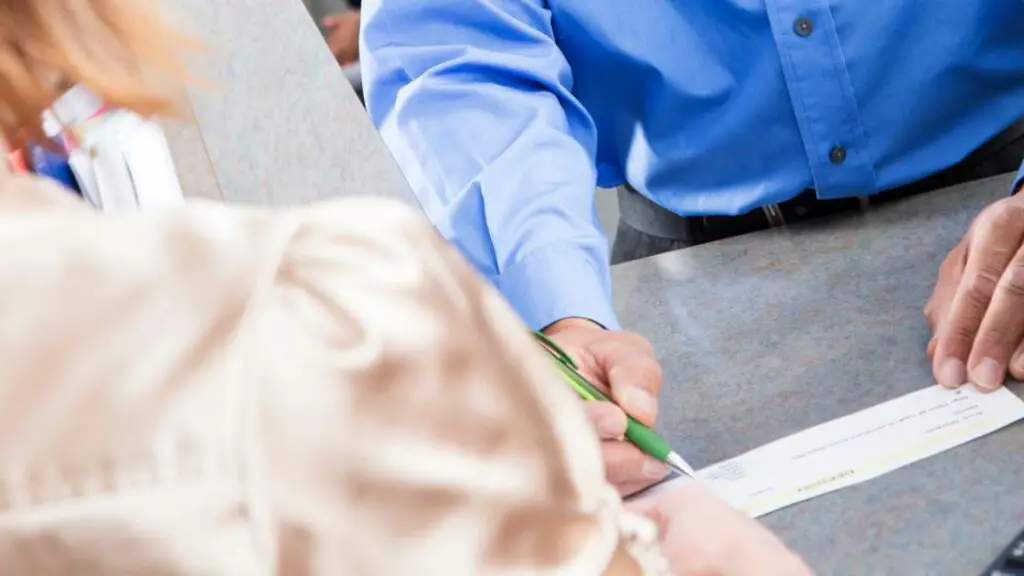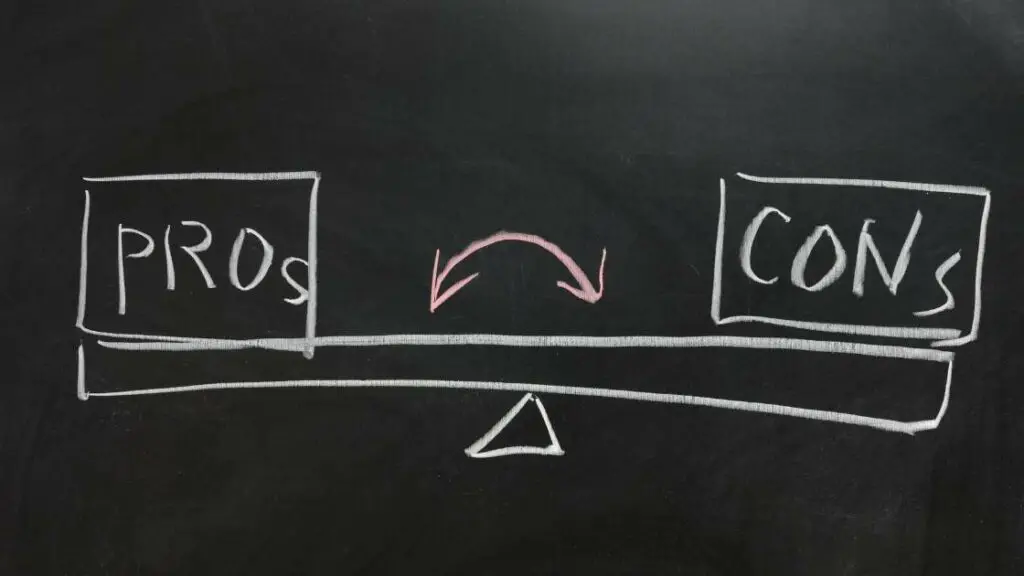These days, you have a wide variety of options to choose from when paying your rent.
There are rental payment platforms like apartments.com, general money transfer apps like Venmo, Zelle and Cashapp, and old school methods like sending a check in the mail or even delivering an envelope full of cash.
One potential option that is not very well known is depositing a check directly into your landlord’s account. Now I admit it seems a bit weird depositing a check into someone else’s account, so you may be wondering whether this is even permitted. If so, you are in the right place.
In this article, I am going to answer whether you can deposit a check into your landlord’s account. I will also cover some of the requirements needed to do this, the pros and cons of this type of payment option, and some other options that may be better suited for you and your landlord.
If you don’t have the time to read through it all, here’s a short answer to the question:
As a general matter, you can deposit a check into your landlord’s account by going to the branch and asking for the check to be deposited in the account. You will need the name on the account and the account number for the bank to deposit it properly. Some banks may have policies limiting this practice, so check with the bank prior to your visit.
Ok, let’s get into it!
The information contained in this post is for informational purposes only. It is not legal advice. You should seek the advice of a qualified legal professional before making any decisions relating to the topics covered by this article.
We may earn commissions from products and services that are purchased or recommended through our website as part of our affiliate partnerships. As an Amazon affiliate, we may earn from qualifying purchases.
Can I Deposit a Check Into My Landlord’s Account?

As stated at the top, you can do this, but you should be aware that some banks may have policies prohibiting or at least limiting this practice.
Always confirm with the bank that this is allowed before you head out.
Requirements for Depositing a Check Into Landlord’s Account
- First, you should have mutual agreement between yourself and your landlord to use this type of payment process. The last thing you want is to create any confusion or not get credit for your rental payment.
- Second, you should obtain from your landlord the exact name on the landlord’s account (it could be in the name of the landlord’s business entity, for example) and the full account number. This is so that the bank teller knows which account to deposit the funds into.
- Third, make sure that the payee on your check is the same as the name on the landlord’s account. If these two do not match, the bank will not accept the check.
- Fourth, make sure you get a receipt. Since you are not the accountholder, you will not have access to the record of the transaction, so you should ask the bank for physical proof that the check was accepted by the bank.
What Are the Pros and Cons of Depositing a Check Into My Landlord’s Account?

Ok, now that we know what’s required, let’s look at whether it’s a good idea. Here are some of the pros and cons of using this payment approach.
Pros of Depositing a Check into a Landlord’s Account:
- Convenience – If the branch is conveniently located, you can take care of paying the rent easily.
- Speed – If the rent is due soon, you can make a same day deposit by going to the branch.
- In Person Verification – Since you are depositing the check in person, you know that the landlord has received it into their account.
- Proof of Transaction – You can (and should) ask for a receipt or similar proof of deposit for your records.
Cons of Depositing a Check into a Landlord’s Account:
- Requires a Physical Visit to Branch – Sometimes getting out of the house is a pain. This method will require you to do so each time you want to pay rent.
- Not Automated – This is a highly manual process. You need to write out a check, have the account information at hand, go to the branch, and make sure you get a receipt, which you then need to keep somewhere.
- Some Banks May Not Allow It – This option may be not be universally accepted, so you will need to do some digging to find out if this process is even viable.
Potentially Better Alternatives

If you decide that this option is not for right for your situation, you will need another way to pay the rent.
Of course, you should consult with your landlord to figure out a happy compromise, but here are some popular options that offer nice benefits.
Free Person to Person Cash Transfer Apps
If your landlord is an individual, you can suggest using popular apps like Venmo, Zelle, Cashapp, Google Pay, etc. They are free to use and easy to set up.
The money goes out of your account and directly into the landlord’s account without any physical visits by either of you to the bank branch. Plus, there is a clear record of the transaction for both parties.
Rental Payment Platforms
You can use platforms like zillow.com and apartments.com to make rental payments. They operate in much the same way – deposits are withdrawn from your account and deposited into the landlord’s account.
If your landlord has multiple properties, they may want to use a single platform to manage rental payments for all of their properties. This can be a great way for them to do that.
Personally, I own multiple rentals and use apartments.com. It’s free for me and for all of my tenants, works well, and operates without a hitch.
Final Thoughts
So there you have it – a detailed answer to whether you can deposit a check into your landlord’s account. Hope you have found this helpful and happy renting!

